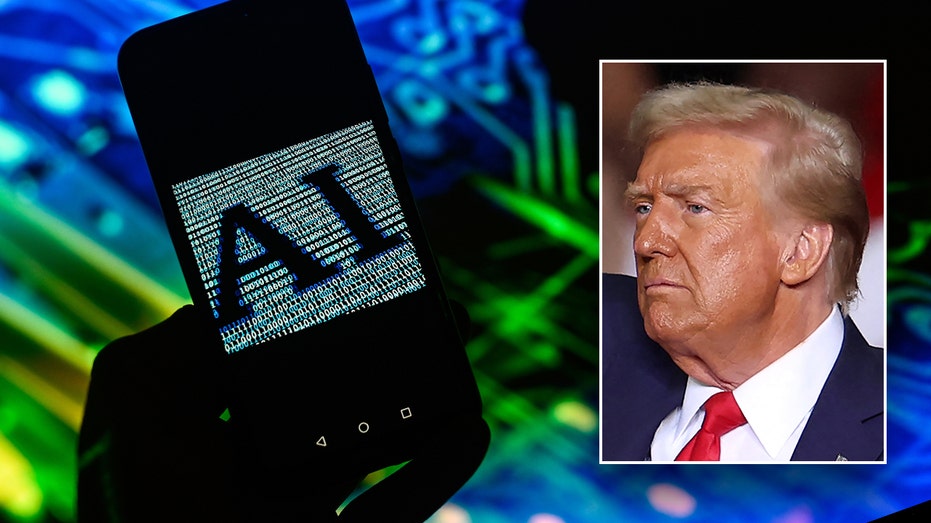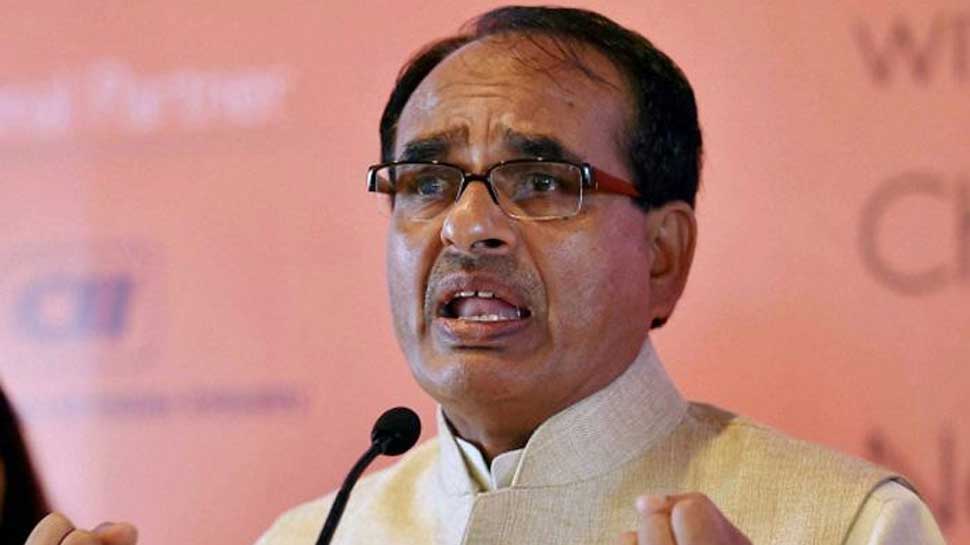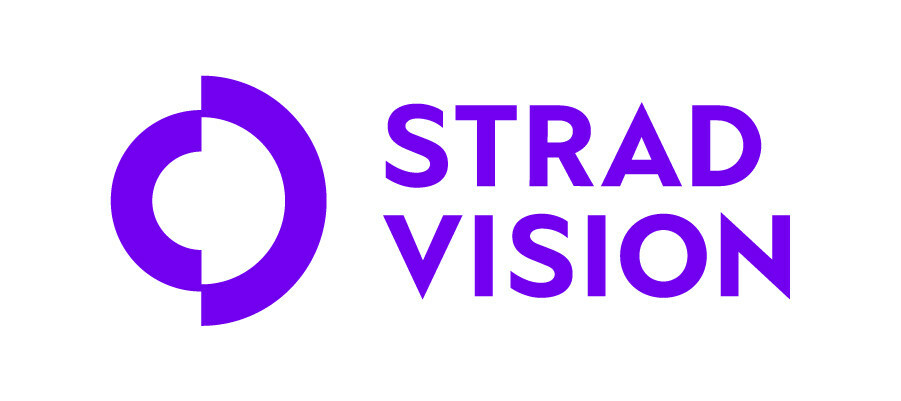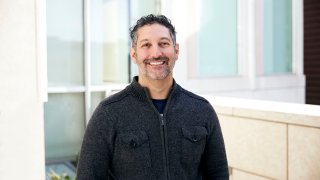slot game casino
2025-01-13 2025 European Cup slot game casino
News
Thousands rallied across Georgia on Thursday for a second week of pro-EU protests, after the prime minister threatened to "eradicate" the country's "liberal-fascist" opposition. Tbilisi has been rocked by turmoil since the governing Georgian Dream party, which critics accuse of creeping authoritarianism and leading the country back towards Russia, claimed victory in a disputed election in October. The government said last Thursday that it would suspend EU membership talks until 2028, sparking a fresh wave of demonstrations that have been met with a heavy-handed response from authorities. Several thousand people gathered outside parliament on Thursday for the eighth consecutive night of protests. Some held signs reading "your repression will finish you" in a reference to the government's heavy-handed response to the demonstrations, an AFP reporter witnessed. "This government has to change as they just don't care about us, about future generations," said Mano, a 23-year-old who declined to give her full name. As on previous nights, some demonstrators banged on the metal barriers blocking the parliament's entrance, waved EU flags and blew horns and whistles. But turnout was initially lower than in the previous days. Nini Tchurghulia, 19, a history student wrapped in a Georgian flag, said she was worried that the movement might be losing steam but was nevertheless determined to continue protesting. "We will win" in the end, she said. Protests were also held in cities including Batumi, Kutaisi, and Zugdidi, local media reported. The reports said several demonstrators were arrested in Kutaisi. Video footage shared on social media showed a teenager lying on the ground, semi-conscious, as protesters accused the police of using excessive force against him. Earlier, Prime Minister Irakli Kobakhidze told reporters "we will do everything necessary to completely eradicate liberal fascism in Georgia," escalating the government's bitter campaign against its rivals. "This process has already begun. These recent developments mark the start of the end of liberal fascism in Georgia," he said, using language reminiscent of the Kremlin in Russia to target political opponents. Masked police on Thursday raided several opposition party offices and arrested opposition leaders. Kobakhidze has refused to back down in the face of international condemnation, instead escalating a feud with pro-EU opposition groups that are demanding a rerun of the elections. Around 300 people have been detained and dozens injured, including protestors and police, in clashes outside parliament in Tbilisi over the last week. Several demonstrators, including journalists, have needed hospital treatment after being detained and, they allege, beaten by security forces. Rights ombudsman Levan Ioseliani has accused the police of using "torture" against those detained at rallies. On Thursday, he said that 191 protesters detained over the past week had reported mistreatment in custody, with 138 showing visible injuries. On Wednesday, Georgian police arrested seven people for "organising and leading group violence" and seized crates of fireworks, which have been launched by protestors at riot police. Opposition leader Nika Gvaramia of the Akhali party was beaten and detained during a police raid. Television footage showed him apparently unconscious, being carried away by masked security forces. Another detained opposition politician, Alexandre Elisashvili, was hospitalised with "serious injuries" he allegedly sustained in custody, his Strong Georgia opposition alliance said. The United States and other countries have denounced Georgia's crackdown, threatening additional sanctions against the country's leaders. Kobakhidze rejected Blinken's statements and said Tbilisi was hoping for better relations with Washington after Donald Trump takes office in January. Critics of the government are enraged by what they call its betrayal of Georgia's bid for EU membership, which is enshrined in its constitution and supported by around 80 percent of the population. Several ambassadors and a deputy foreign minister, resigned over the decision to suspend EU accession talks. Galvanising the protest movement, a senior interior ministry official tasked with responding to the protests also quit on Wednesday, posting his resignation letter on social media accompanied by Georgian and European flag emojis. The protests have drawn comparisons with the 2014 pro-EU revolution in Ukraine that ousted a Moscow-backed president. Ukraine's President Volodymyr Zelensky on Thursday criticised Kobakhidze and billionaire Bidzina Ivanishvili, widely seen as the country's de facto leader, for "handing Georgia over to Putin", he said in a video message referring to Russia's President Vladimir Putin. Since 2022, Georgia has advanced legislation targeting civil society and independent media as well as curbing LGBTQ rights, measures critics say are based on repressive Russian laws. ub-im/gvCanada’s chief of the defence staff says multiple global threats and military needs keep her up at night, but her top priority is boosting the number of people in the Canadian Armed Forces. Speaking to Mercedes Stephenson at the Halifax International Security Forum in an interview that aired Sunday on The West Block , Gen. Jennie Carignan said she’s pushing for recruitment to exceed 10 per cent of the military’s end-of-year goal if that target is met ahead of time, with an overall objective of returning to “full strength” in five years. “If we get close to the end of the year and we are at target, we’re not going to stop,” she said. “If we can go above, we will.” She added steps have been taken to streamline the recruiting process, and that work needs to be done to properly train those new recruits quickly and get them into service. The Department of National Defence says the Canadian Armed Forces is roughly 16,500 members short of its authorized target strength outlined in the updated defence policy. That’s added to concerns regarding Canada’s military readiness that has earned criticism from NATO allies, particularly the United States, as Canada continues to miss NATO’s benchmark of spending at least two per cent of GDP on defence. Ottawa says it plans to reach that target by 2032 and has already taken several steps to boost spending and procurement to meet its NATO commitments, yet concerns remain about whether the government’s plan is feasible. Beyond personnel, Carignan said she’s also prioritizing security and defence of the Arctic, where both Russia and China have encroached on Canada’s sovereignty. In contrast to previous years, Carignan said the deepening bond between Moscow and Beijing has led to more collaboration between the two counties. “We used to see presence from both of them, but now they come in, whether it’s through joint exercises or joint patrols, whether it’s via maritime ways or in the air as well,” she said. She added Russian and Chinese research vessels that are “constantly” navigating the Arctic are also gathering intelligence. Carignan said more investment is needed to modernize and expand existing detection capabilities in the Arctic. Although the government has committed billions of dollars to over-the-horizon radar systems in the North, she said procurement needs to be sped up to urgently get those systems in place. Incoming U.S. president-elect Donald Trump is expected to put pressure on allies to step up its defence spending and burden-sharing, which could put Canada in the crosshairs. But Carignan said she’s focused on maintaining Canadian sovereignty in a way that proves the country’s seriousness on defence to the U.S. “I am very seized with our responsibilities,” she said. “This is a key priority and definitely where we concentrate a lot of our efforts.” She said any potential settlement to the war in Ukraine — including a negotiated deal that gives Russia some of the land it has occupied since its invasion in 2022 — “is not going to modify” Canada’s efforts to reinforce its brigade in Latvia, which is scheduled to be fully operational by 2026. The brigade is a key part of NATO’s eastern defensive line in Europe. “We will need to look at our own involvement and contribution to Ukraine’s stability going into the future,” she said. “So, of course, we’re going to be watching and monitoring and adapting with the information that will be coming, that’s for sure.”
pp slot game
。
AI Will Bring About A Golden Age Of Discovery In Science: Google’s Demis Hassabis - OfficeChaiAs “ Wicked ” gets ready to take theaters by storm this weekend, many online are pointing to the Hollywood adaptation of the hit broadway musical as having an added political significance just 18 days after Donald Trump defeated Kamala Harris in the Presidential election. While he was a guest on an upcoming episode of IndieWire’s Filmmaker Toolkit podcast , “ Wicked ” director Jon M. Chu acknowledged the politics of the story of the Wizard of Oz (Jeff Goldblum) and Elphaba, the Wicked Witch of the West ( Cynthia Erivo ), joking, “A charismatic leader who gaslights a community that this woman is wicked just because she’s standing up for a marginalized group of people in the society, how could that be [political]?” Chu embraces that his movie will take on a new layer of meaning for many audience members after the re-election of Trump, but noted that impact is in part because politics has been baked into “Wicked” since its inception. Gregory Maguire’s 1995 book “Wicked” is a meditation on resisting fascist movements, a not-so-subtle theme that carried into its musical adaptation by Stephen Schwartz and Winnie Holzman. A major underlying storyline of “Wicked” is how leaders, who claim to have the people’s best interest at heart, attack the educated — represented by professor Dr. Dillamond, a talking goat voiced by Peter Dinklage — as they try to rewrite the history of animals and humans co-existence in an effort to strip the animals of their rights, and demonize them as the source of the people’s problems. Through this lens, Chu acknowledged his film is prophetic, but only because the underlying IP is prophetic. Chu argued the original “ Wizard of Oz ” movie — released on the heels of the 1930s Dust Bowl (the drought-stricken storms of the Depression), during the rise of fascism, and on the eve of World War II — has always spoken to America in a time of transition. He personally experienced it at two very different political moments that “Wicked” entered his life. “When I saw it in 2002, I was in college, so I was still growing up,” said Chu while on the podcast. “I was seeing the world for the first time a year after 9/11, we’re going into war, America’s in transition, and everything is scary all around. And when in scary situations, people go towards strongmen who just take the reins.” Chu first saw the original staged musical in the Bay Area, where he grew up, before it hit Broadway to become a $6 billion global sensation. It would come back around to him 18 years later, now a successful Hollywood director being approached about helming its big screen adaptation. “I got this movie when we were in [COVID] lockdown,” said Chu. “So at that moment, those words ‘Defying Gravity,’ [Elphaba’s gravity-defying musical number after learning the truth about the Wizard], when she says, ‘Something has changed within me, something’s not the same, I’m through with playing by the rules of someone else’s game,’ to me, I felt like the whole world feels like this.” Chu does see “Wicked” through the eyes of being the son of immigrants. Chu’s mother was born in Taiwan, his father in Sichuan, China. He brings this perspective to all of his projects, and it’s a big reason Lin-Manuel Miranda selected the “ Crazy Rich Asians ” director to adapt “ In the Heights ,” a musical about Miranda’s Dominican and Puerto Rican immigrant neighborhood of Washington Heights. “The American fairy tale, they always say it’s put together with American parts: Resilience, self-reliance, and optimism, and I love that as the starting point [for ‘Wicked’],” said Chu, who personally draws inspiration from Elphaba’s “Defying Gravity” musical and metaphysical response to learning the truth about the Wizard at the end of the first movie, but part of what he finds moving about it is the underlying hard question of that moment. “The storyteller has been unveiled and now the story we’re sitting in, we’re wondering, ‘Was this ever true?’ Is the yellow brick road that my parents talked to us plenty times about in the ‘Wizard of Oz,’ when I was growing up as immigrants, was that a real thing? Or maybe it was never made for us?” For Chu, Elphaba’s discovery that there is no wizard who is going to fix all our problems naturally leads to an important realization: “We’ll have to fix them ourselves.” Chu went on to explain, “It’s not even about the truth... It’s when you find out the truth, when you wake up, what are you going to do? What’s your decision? Are you an Elphaba, or are you a Glinda (Ariana Grande)?” That that’s where the first of two “Wicked” movies leaves off will feel eerily prescient for many in the audience, who Chu knows will feel as if we are politically at the same crossroads as the two best friends just days after the election. “I’ve thought a lot about this, the timeless thing about it, that never ends, is the resilience of human beings and what we can do, and what we can get through. Because when the path doesn’t seem like ours, we always rise above and sometimes we even find that we could fly,” said Chu. “That is what we need now more than ever. I didn’t know that that’s what was happening, but that is kind of the process and tradition of freedom.” In acknowledging the film will play differently for many after the election — and likely knowing the film will need both red and blue state audiences to embrace its universal messages to dominate the box office, as is being predicted — Chu said he thinks Glinda and Elphaba, the two roommates who hate each other before forming a sisterly bond, only to be forced apart by the politics of Oz — could serve as a model. “Technology has brought us all into the same dorm room,” Chu said, drawing an analogy. “We’re suddenly all roommates, and we are not alike, and that person’s messy, and that person smells, and that person does this, and ‘holy shit, we have to get along.’ And now it’s like college, the only way to actually find peace between us is maybe yell at each other, maybe say the things that we need to say, and actually forgive each other and give some grace, because the only way out is through, and so this has so many ties to where we’re at right now. Look for IndieWire’s Toolkit upcoming episode with Jon M. Chu’s on Spotify and Apple Podcasts .
A federal appeals court panel on Friday unanimously upheld a law that could lead to a ban on TikTok in a few short months, handing a resounding defeat to the popular social media platform as it fights for its survival in the U.S. The U.S. Court of Appeals for the District of Columbia Circuit denied TikTok's petition to overturn the law — which requires TikTok to break ties with its China-based parent company ByteDance or be banned by mid-January — and rebuffed the company's challenge of the statute, which it argued had ran afoul of the First Amendment. “The First Amendment exists to protect free speech in the United States,” said the court's opinion, which was written by Judge Douglas Ginsburg. “Here the Government acted solely to protect that freedom from a foreign adversary nation and to limit that adversary’s ability to gather data on people in the United States.” TikTok and ByteDance — another plaintiff in the lawsuit — are expected to appeal to the Supreme Court, though its unclear whether the court will take up the case. “The Supreme Court has an established historical record of protecting Americans’ right to free speech, and we expect they will do just that on this important constitutional issue," TikTok spokesperson Michael Hughes said in a statement. “Unfortunately, the TikTok ban was conceived and pushed through based upon inaccurate, flawed and hypothetical information, resulting in outright censorship of the American people,” Hughes said. Unless stopped, he argued the statute “will silence the voices of over 170 million Americans here in the US and around the world on January 19th, 2025.” Though the case is squarely in the court system, its also possible the two companies might be thrown some sort of a lifeline by President-elect Donald Trump, who tried to ban TikTok during his first term but said during the presidential campaign that he is now against such action . The law, signed by President Joe Biden in April, was the culmination of a years-long saga in Washington over the short-form video-sharing app, which the government sees as a national security threat due to its connections to China. The U.S. has said it’s concerned about TikTok collecting vast swaths of user data, including sensitive information on viewing habits , that could fall into the hands of the Chinese government through coercion. Officials have also warned the proprietary algorithm that fuels what users see on the app is vulnerable to manipulation by Chinese authorities, who can use it to shape content on the platform in a way that’s difficult to detect — a concern mirrored by the European Union on Friday as it scrutinizes the video-sharing app’s role in the Romanian elections. TikTok, which sued the government over the law in May, has long denied it could be used by Beijing to spy on or manipulate Americans. Its attorneys have accurately pointed out that the U.S. hasn’t provided evidence to show that the company handed over user data to the Chinese government, or manipulated content for Beijing’s benefit in the U.S. They have also argued the law is predicated on future risks, which the Department of Justice has emphasized pointing in part to unspecified action it claims the two companies have taken in the past due to demands from the Chinese government. Friday’s ruling came after the appeals court panel, composed of two Republican and one Democrat appointed judges, heard oral arguments in September. In the hearing, which lasted more than two hours, the panel appeared to grapple with how TikTok’s foreign ownership affects its rights under the Constitution and how far the government could go to curtail potential influence from abroad on a foreign-owned platform. On Friday, all three of them denied TikTok’s petition. In the court's ruling, Ginsburg, a Republican appointee, rejected TikTok's main legal arguments against the law, including that the statute was an unlawful bill of attainder or a taking of property in violation of the Fifth Amendment. He also said the law did not violate the First Amendment because the government is not looking to "suppress content or require a certain mix of content” on TikTok. “Content on the platform could in principle remain unchanged after divestiture, and people in the United States would remain free to read and share as much PRC propaganda (or any other content) as they desire on TikTok or any other platform of their choosing,” Ginsburg wrote, using the abbreviation for the People’s Republic of China. Judge Sri Srinivasan, the chief judge on the court, issued a concurring opinion. TikTok’s lawsuit was consolidated with a second legal challenge brought by several content creators - for which the company is covering legal costs - as well as a third one filed on behalf of conservative creators who work with a nonprofit called BASED Politics Inc. Other organizations, including the Knight First Amendment Institute, had also filed amicus briefs supporting TikTok. “This is a deeply misguided ruling that reads important First Amendment precedents too narrowly and gives the government sweeping power to restrict Americans’ access to information, ideas, and media from abroad,” said Jameel Jaffer, the executive director of the organization. “We hope that the appeals court’s ruling won’t be the last word.” Meanwhile, on Capitol Hill, lawmakers who had pushed for the legislation celebrated the court's ruling. "I am optimistic that President Trump will facilitate an American takeover of TikTok to allow its continued use in the United States and I look forward to welcoming the app in America under new ownership,” said Republican Rep. John Moolenaar of Michigan, chairman of the House Select Committee on China. Democratic Rep. Raja Krishnamoorthi, who co-authored the law, said “it's time for ByteDance to accept” the law. To assuage concerns about the company’s owners, TikTok says it has invested more than $2 billion to bolster protections around U.S. user data. The company has also argued the government’s broader concerns could have been resolved in a draft agreement it provided the Biden administration more than two years ago during talks between the two sides. It has blamed the government for walking away from further negotiations on the agreement, which the Justice Department argues is insufficient. Attorneys for the two companies have claimed it’s impossible to divest the platform commercially and technologically. They also say any sale of TikTok without the coveted algorithm - the platform’s secret sauce that Chinese authorities would likely block under any divesture plan - would turn the U.S. version of TikTok into an island disconnected from other global content. Still, some investors, including Trump’s former Treasury Secretary Steven Mnuchin and billionaire Frank McCourt, have expressed interest in purchasing the platform. Both men said earlier this year that they were launching a consortium to purchase TikTok’s U.S. business. This week, a spokesperson for McCourt’s Project Liberty initiative, which aims to protect online privacy, said unnamed participants in their bid have made informal commitments of more than $20 billion in capital.
Calhoun County E911 Becomes First to Launch Ryzyliant's Solution with INdigital NGCS SupportRocket lands near Tel Aviv after Israel strikes BeirutNone
NoneIt is an ambitious social experiment of our moment in history — one that experts say could accomplish something that parents, schools and other governments have attempted with varying degrees of success: keeping kids . Australia's new law, approved by its Parliament last week, is an attempt to swim against many tides of modern life — formidable forces like technology, marketing, globalization and, of course, the iron will of a teenager. And like efforts of the past to protect kids from things that parents believe they're not ready for, the nation's move is both ambitious and not exactly simple, particularly in a world where young people are often shaped, defined and judged by the online company they keep. The ban won't go into effect for another year. But how will Australia be able to enforce it? That's not clear, nor will it be easy. TikTok, Snapchat and Instagram have become so ingrained in young people's lives that going cold turkey will be difficult. Other questions loom. Does the ban limit kids' free expression and — especially for those in vulnerable groups — isolate them and curtail their opportunity to connect with members of their community? And how will social sites verify people's ages, anyway? Can't kids just get around such technicalities, as they so often do? This is, after all, the 21st century — an era when social media is the primary communications tool for most of those born in the past 25 years who, in a fragmented world, seek the common cultures of trends, music and memes. What happens when big swaths of that fall away? Is Australia's initiative a good, long-time-coming development that will protect the vulnerable, or could it become a well-meaning experiment with unintended consequences? The law will make platforms including TikTok, Facebook, Snapchat, Reddit, X and Instagram liable for fines of up to 50 million Australian dollars ($33 million) for systemic failures to prevent children younger than 16 from holding accounts. “It’s clear that social media companies have to be held accountable, which is what Australia is trying to do,” said Jim Steyer, president and CEO of the nonprofit Common Sense Media. Leaders and parents in countries around the world are watching Australia’s policy closely as many seek to protect young kids from the internet's dangerous corners — and, not incidentally, from each other. Most nations have taken different routes, from parental consent requirements to minimum age limits. Many child safety experts, parents and even teens who have waited to get on social media consider Australia's move a positive step. They say there’s ample reason to ensure that children wait. “What’s most important for kids, just like adults, is real human connection. Less time alone on the screen means more time to connect, not less," said Julie Scelfo, the founder of Mothers Against Media Addiction, or MAMA, a grassroots group of parents aimed at combatting the harms of social media to children. “I’m confident we can support our kids in interacting in any number of ways aside from sharing the latest meme.” The harms to children from social media have been well documented in the two decades since Facebook’s launch ushered in a new era in how the world communicates. Kids who spend more time on social media, especially as tweens or young teenagers, are more likely to experience depression and anxiety, according to — though it is not yet clear if there is a causal relationship. What's more, many are exposed to content that is not appropriate for their age, including pornography and violence, as well as . They also face bullying, sexual harassment and unwanted advances from their peers as well as adult strangers. Because their brains are not fully developed, teenagers, especially younger ones the law is focused on, are also more affected by social comparisons than adults, so even happy posts from friends can send them into a negative spiral. Many major initiatives, particularly those aimed at social engineering, can produce side effects — often unintended. Could that happen here? What, if anything, do kids stand to lose by separating kids and the networks in which they participate? Paul Taske, associate director of litigation at the tech lobbying group NetChoice, says he considers the ban “one of the most extreme violations of free speech on the world stage today" even as he expressed relief that the First Amendment prevents such law in the United States "These restrictions would create a massive cultural shift,” Taske said. “Not only is the Australian government preventing young people from engaging with issues they’re passionate about, but they’re also doing so even if their parents are ok with them using digital services," he said. "Parents know their children and their needs the best, and they should be making these decisions for their families — not big government. That kind of forcible control over families inevitably will have downstream cultural impacts.” David Inserra, a fellow for Free Expression and Technology, Cato Institute, called the bill “about as useful as an ashtray on a motorbike” in a . While Australia's law doesn't require “hard verification” such as an uploaded ID, he said, it calls for effective “age assurance.” He said no verification system can ensure accuracy while also protecting privacy and not impacting adults in the process. Privacy advocates have also raised concerns about the law's effect on online anonymity, a cornerstone of online communications — and something that can protect teens on social platforms. “Whether it be religious minorities and dissidents, LGBTQ youth, those in abusive situations, whistleblowers, or countless other speakers in tricky situations, anonymous speech is a critical tool to safely challenge authority and express controversial opinions,” Inserra said. A spot check of kids at one mall in the Australian city of Brisbane on Wednesday didn't turn up a great deal of worry, though. “Social media is still important because you get to talk to people, but I think it’s still good that they’re like limiting it,” said Swan Son, a 13-year-old student at Brisbane State High School. She said she has had limited exposure to social media and wouldn’t really miss it for a couple of years. Her parents already enforce a daily one-hour limit. And as for her friends? “I see them at school every day, so I think I’ll be fine.” Conor Negric, 16, said he felt he’d dodged a bullet because of his age. Still, he considers the law reasonable. “I think 16 is fine. Some kids, I know some kids like 10 who’re on Instagram, Snapchat. I only got Instagram when I was 14." His mom, Sive Negric, who has two teenage sons, said she was happy for her boys to avoid exposure to social media too early: “That aspect of the internet, it’s a bit `meanland.'" Parents in earlier this year organized on platforms such as WhatsApp and Telegram to promise not to buy smartphones for children younger than 12 or 13. This approach costs almost no money and requires no government enforcement. In the United States, some parents are either informally or as part of an organized campaign such as Wait Until 8th, a group that helps parents delay kids' access to social media and phones. This fall, Norway announced plans to ban kids under 15 from using social media, while a smartphone ban for kids under 15 in a limited number of schools — a policy that could be rolled out nationwide if successful. U.S. lawmakers have held multiple congressional hearings — — on child online safety. Still, the last federal law aimed at protecting children online was enacted in 1998, six years before Facebook’s founding. In July, the U.S. Senate overwhelmingly passed legislation , pushing forward with what would be the first major effort by Congress in decades to hold tech companies more accountable. But the has since stalled in the House. While several states have passed laws requiring age verification, those are stuck in court. Utah became to pass laws regulating children’s social media use in 2023. In September, a against the law, which would have required social media companies to verify the ages of users, apply privacy settings and limit some features. NetChoice has also obtained injunctions temporarily halting similar laws in several other states. And last May, said there is insufficient evidence to show social media is safe for kids. He urged policymakers to treat social media like car seats, baby formula, medication and other products children use. “Why should social media products be any different? Scelfo said. “Parents cannot possibly bear the entire responsibility of keeping children safe online, because the problems are baked into the design of the products.”
Watching for washing at the casinos
MEXICO CITY, Dec. 05, 2024 (GLOBE NEWSWIRE) -- Controladora Vuela Compañía de Aviación, S.A.B. de C.V. VLRS VOLAR ("Volaris" or "the Company"), the ultra-low-cost carrier (ULCC) serving Mexico, the United States, Central and South America, reports its November 2024 preliminary traffic results. In November, Volaris' ASM capacity decreased by 3.7% year-over-year due to the Pratt & Whitney engine inspections offset by fewer aircraft groundings following the return of the initial batch of inspected engines. Volaris transported 2.6 million passengers during the month with a load factor of 86.8%, a 3.0 pp decrease from last year. RPMs for the month declined by 6.9%, with Mexican domestic RPMs down 10.5%, while international RPMs were effectively flat. When comparing year-over-year RPMs and load factor results it is useful to note that our 2023 figures were impacted by the accelerating engine inspections. Last year, we had to reduce operations as engines temporarily left our fleet; today, we are gradually adding capacity as engines and aircraft return. Enrique Beltranena, Volaris' President and CEO, said : "Demand remains solid across the Volaris network, particularly as the domestic market continues to be resilient. Heading into the winter season, we continue strategically investing in the transborder market. In November, we added transborder capacity in preparation for the December high season, which is ramping up. We see this ramping well into the peak holiday season and will continue to manage low-season demand elasticity through capacity adjustments when necessary." Mr. Beltranena added: "We are pleased with our strong operating figures year-to-date despite the headwinds, such as the GTF engine inspections." November 2024 November 2023 Variance YTD November 2024 YTD November 2023 Variance RPMs (million, scheduled & charter) Domestic 1,554 1,736 -10.5 % 16,503 20,613 -19.9 % International 963 967 -0.3 % 10,232 10,008 2.2 % Total 2,518 2,703 -6.9 % 26,735 30,620 -12.7 % ASMs (million, scheduled & charter) Domestic 1,688 1,867 -9.6 % 18,210 23,605 -22.9 % International 1,212 1,143 6.0 % 12,619 11,974 5.4 % Total 2,899 3,011 -3.7 % 30,829 35,579 -13.4 % Load Factor (%, RPMs/ASMs) Domestic 92.1 % 93.0 % (0.9 ) pp 90.6 % 87.3 % 3.3 pp International 79.5 % 84.5 % (5.0 ) pp 81.1 % 83.6 % (2.5) pp Total 86.8 % 89.8 % (3.0 ) pp 86.7 % 86.1 % 0.7 pp Passengers (thousand, scheduled & charter) Domestic 1,882 2,047 -8.1 % 19,721 23,801 -17.1 % International 668 667 0.2 % 6,991 6,883 1.6 % Total 2,550 2,714 -6.0 % 26,712 30,684 -12.9 % The information included in this report has not been audited and does not provide information on the Company's future performance. Volaris' future performance depends on several factors. It cannot be inferred that any period's performance or its comparison year-over-year will indicate a similar performance in the future. Figures are rounded for convenience purposes. Glossary Revenue passenger miles (RPMs): Number of seats booked by passengers multiplied by the number of miles flown. Available seat miles (ASMs): Number of seats available for passengers multiplied by the number of miles flown. Load factor: RPMs divided by ASMs and expressed as a percentage. Passengers: The total number of passengers booked on all flight segments. Investor Relations Contact Ricardo Martínez / ir@volaris.com Media Contact Israel Álvarez / ialvarez@gcya.net About Volaris *Controladora Vuela Compañía de Aviación, S.A.B. de C.V. ("Volaris" or "the Company") VLRS VOLAR is an ultra-low-cost carrier, with point-to-point operations, serving Mexico, the United States, Central, and South America. Volaris offers low base fares to build its market, providing quality service and extensive customer choice. Since the beginning of operations in March 2006, Volaris has increased its routes from 5 to more than 219 and its fleet from 4 to 142 aircraft. Volaris offers more than 450 daily flight segments on routes that connect 44 cities in Mexico and 29 cities in the United States, Central, and South America, with one of the youngest fleets in Mexico. Volaris targets passengers who are visiting friends and relatives, cost-conscious business and leisure travelers in Mexico, the United States, Central, and South America. Volaris has received the ESR Award for Social Corporate Responsibility for fifteen consecutive years. For more information, please visit ir.volaris.com . Volaris routinely posts information that may be important to investors on its investor relations website. The Company encourages investors and potential investors to consult the Volaris website regularly for important information about Volaris. © 2024 Benzinga.com. Benzinga does not provide investment advice. All rights reserved.
As “ Wicked ” gets ready to take theaters by storm this weekend, many online are pointing to the Hollywood adaptation of the hit broadway musical as having an added political significance just 18 days after Donald Trump defeated Kamala Harris in the Presidential election. While he was a guest on an upcoming episode of IndieWire’s Filmmaker Toolkit podcast , “ Wicked ” director Jon M. Chu acknowledged the politics of the story of the Wizard of Oz (Jeff Goldblum) and Elphaba, the Wicked Witch of the West ( Cynthia Erivo ), joking, “A charismatic leader who gaslights a community that this woman is wicked just because she’s standing up for a marginalized group of people in the society, how could that be [political]?” Chu embraces that his movie will take on a new layer of meaning for many audience members after the re-election of Trump, but noted that impact is in part because politics has been baked into “Wicked” since its inception. Gregory Maguire’s 1995 book “Wicked” is a meditation on resisting fascist movements, a not-so-subtle theme that carried into its musical adaptation by Stephen Schwartz and Winnie Holzman. A major underlying storyline of “Wicked” is how leaders, who claim to have the people’s best interest at heart, attack the educated — represented by professor Dr. Dillamond, a talking goat voiced by Peter Dinklage — as they try to rewrite the history of animals and humans co-existence in an effort to strip the animals of their rights, and demonize them as the source of the people’s problems. Through this lens, Chu acknowledged his film is prophetic, but only because the underlying IP is prophetic. Chu argued the original “ Wizard of Oz ” movie — released on the heels of the 1930s Dust Bowl (the drought-stricken storms of the Depression), during the rise of fascism, and on the eve of World War II — has always spoken to America in a time of transition. He personally experienced it at two very different political moments that “Wicked” entered his life. “When I saw it in 2002, I was in college, so I was still growing up,” said Chu while on the podcast. “I was seeing the world for the first time a year after 9/11, we’re going into war, America’s in transition, and everything is scary all around. And when in scary situations, people go towards strongmen who just take the reins.” Chu first saw the original staged musical in the Bay Area, where he grew up, before it hit Broadway to become a $6 billion global sensation. It would come back around to him 18 years later, now a successful Hollywood director being approached about helming its big screen adaptation. “I got this movie when we were in [COVID] lockdown,” said Chu. “So at that moment, those words ‘Defying Gravity,’ [Elphaba’s gravity-defying musical number after learning the truth about the Wizard], when she says, ‘Something has changed within me, something’s not the same, I’m through with playing by the rules of someone else’s game,’ to me, I felt like the whole world feels like this.” Chu does see “Wicked” through the eyes of being the son of immigrants. Chu’s mother was born in Taiwan, his father in Sichuan, China. He brings this perspective to all of his projects, and it’s a big reason Lin-Manuel Miranda selected the “ Crazy Rich Asians ” director to adapt “ In the Heights ,” a musical about Miranda’s Dominican and Puerto Rican immigrant neighborhood of Washington Heights. “The American fairy tale, they always say it’s put together with American parts: Resilience, self-reliance, and optimism, and I love that as the starting point [for ‘Wicked’],” said Chu, who personally draws inspiration from Elphaba’s “Defying Gravity” musical and metaphysical response to learning the truth about the Wizard at the end of the first movie, but part of what he finds moving about it is the underlying hard question of that moment. “The storyteller has been unveiled and now the story we’re sitting in, we’re wondering, ‘Was this ever true?’ Is the yellow brick road that my parents talked to us plenty times about in the ‘Wizard of Oz,’ when I was growing up as immigrants, was that a real thing? Or maybe it was never made for us?” For Chu, Elphaba’s discovery that there is no wizard who is going to fix all our problems naturally leads to an important realization: “We’ll have to fix them ourselves.” Chu went on to explain, “It’s not even about the truth... It’s when you find out the truth, when you wake up, what are you going to do? What’s your decision? Are you an Elphaba, or are you a Glinda (Ariana Grande)?” That that’s where the first of two “Wicked” movies leaves off will feel eerily prescient for many in the audience, who Chu knows will feel as if we are politically at the same crossroads as the two best friends just days after the election. “I’ve thought a lot about this, the timeless thing about it, that never ends, is the resilience of human beings and what we can do, and what we can get through. Because when the path doesn’t seem like ours, we always rise above and sometimes we even find that we could fly,” said Chu. “That is what we need now more than ever. I didn’t know that that’s what was happening, but that is kind of the process and tradition of freedom.” In acknowledging the film will play differently for many after the election — and likely knowing the film will need both red and blue state audiences to embrace its universal messages to dominate the box office, as is being predicted — Chu said he thinks Glinda and Elphaba, the two roommates who hate each other before forming a sisterly bond, only to be forced apart by the politics of Oz — could serve as a model. “Technology has brought us all into the same dorm room,” Chu said, drawing an analogy. “We’re suddenly all roommates, and we are not alike, and that person’s messy, and that person smells, and that person does this, and ‘holy shit, we have to get along.’ And now it’s like college, the only way to actually find peace between us is maybe yell at each other, maybe say the things that we need to say, and actually forgive each other and give some grace, because the only way out is through, and so this has so many ties to where we’re at right now. Look for IndieWire’s Toolkit upcoming episode with Jon M. Chu’s on Spotify and Apple Podcasts .
LODI, Calif., Dec. 03, 2024 (GLOBE NEWSWIRE) -- Farmers & Merchants Bancorp (OTCQX: FMCB ) announced today that Deborah Skinner, Executive Vice President and Chief Administrative Officer, will be retiring effective December 31, 2024, after 24 years with Farmers & Merchants Bank of Central California. The Company previously announced her intention to retire back on September 9, 2024. Ms. Skinner will remain with the Company through year-end to assist with the transition. "On behalf of the entire team at FMCB and the Board of Directors, I want to thank Debbie for her leadership and dedication to our company,” said Kent A. Steinwert, Chairman, President and Chief Executive Officer of FMCB. “During her time with the Company, Debbie has been vital to the development and successful execution of our business operations and strategy. I also want to personally thank Debbie for being a trusted advisor to me and true business partner to our management team. We all wish her a happy and well-deserved retirement.” The Company also announced that Troy D. Harper will join the Company as its Executive Vice President and Chief Administrative Officer effective December 9, 2024. Mr. Harper brings over 30 years of operational expertise in financial services to FMCB, including more than 20 years in commercial and retail banking. Prior to joining FMCB, he was Executive Vice President, Chief Information & Operations Officer for HomeStreet Bank, where he led deposit, loan, and treasury management operations, IT, corporate real estate, and security. His career experience includes additional banking and operational roles at the FDIC, Pierce Commercial Bank, CGI Group, and Deloitte Consulting. He received a B.S. in finance and accounting management from Northeastern University. Mr. Harper will work closely with Ms. Skinner until her retirement at year-end to ensure a seamless transition. “As we continue to expand our organization, it’s important that we add highly accomplished, talented, and experienced people to our executive leadership team. Troy brings a depth and breadth of operations and IT experience to the Company that will enrich the management team, while enabling us to execute successfully on our objectives in 2025 and beyond,” stated Mr. Steinwert. About Farmers & Merchants Bancorp Farmers & Merchants Bancorp, trades on the OTCQX under the symbol FMCB, and is the parent company of Farmers & Merchants Bank of Central California, also known as F&M Bank. Founded in 1916, F&M Bank is a locally owned and operated community bank, which proudly serves California through 33 convenient locations. F&M Bank is financially strong, with $5.4 billion in assets, and is consistently recognized as one of the nation's safest banks by national bank rating firms. The Bank has maintained a 5-Star rating from BauerFinancial for 34 consecutive years, longer than any other commercial bank in the State of California. Farmers & Merchants Bancorp has paid dividends for 89 consecutive years and has increased dividends for 59 consecutive years. As a result, Farmers & Merchants Bancorp is a member of a select group of only 56 publicly traded companies referred to as “Dividend Kings,” and is ranked 17 th in that group based on consecutive years of dividend increases. A “Dividend King” is a stock with 50 or more consecutive years of dividend increase. In August 2024, Farmers & Merchants Bancorp was named by Bank Director’s Magazine as the #2 best performing bank in the nation across all asset categories in their annual “Ranking Banking” study of the top performing banks for 2023. Last year the Bank was named by Bank Director’s Magazine as the #1 best performing bank in the nation across all asset categories in their annual “Ranking Banking” study of the top performing banks for 2022. In April 2024, F&M Bank was ranked 6 th on Forbes Magazine’s list of "America’s Best Banks" in 2023. Forbes’ annual “America’s Best Banks” list looks at ten metrics measuring growth, credit quality, profitability, and capital for the 2023 calendar year, as well as stock performance in the 12 months through March 18, 2024. In December 2023, F&M Bank was ranked 4 th on S&P Global Market Intelligence's “Top 50 List of Best-Performing Community Banks” in the US with assets between $3.0 billion and $10.0 billion for 2023. S&P Global Market Intelligence ranks financial institutions based on several key factors including financial returns, growth, and balance sheet risk profile. In October 2021, F&M Bank was named the “Best Community Bank in California” by Newsweek magazine. Newsweek’s ranking recognizes those financial institutions that best serve their customers’ needs in each state. This recognition speaks to the superior customer service the F&M Bank team members provide to its clients. F&M Bank is the 15 th largest bank lender to agriculture in the United States. F&M Bank operates in the mid-Central Valley of California, including Sacramento, San Joaquin, Solano, Stanislaus, and Merced counties and the east region of the San Francisco Bay Area, including Napa, Alameda and Contra Costa counties. F&M Bank was inducted into the National Agriculture Science Center’s “Ag Hall of Fame” at the end of 2021 for providing resources, financial advice, guidance, and support to the agribusiness communities as well as to students in the next generation of agribusiness workforce. F&M Bank is dedicated to helping California remain the premier agricultural region in the world and will continue to work with the next generation of farmers, ranchers, and processors. F&M Bank remains committed to servicing the needs of agribusiness in California as has been the case since its founding over 108 years ago. F&M Bank offers a full complement of loan, deposit, equipment leasing and treasury management products to businesses, as well as a full suite of consumer banking products. The FDIC awarded F&M Bank the highest possible rating of "Outstanding" in their last Community Reinvestment Act (“CRA”) evaluation. Forward-Looking Statements This press release may contain certain forward-looking statements that are based on management's current expectations regarding the Company’s financial performance. Forward-looking statements can be identified by the fact that they do not relate strictly to historical or current facts. They often include the words “believe,” “expect,” “intend,” “estimate” or words of similar meaning, or future or conditional verbs such as “will,” “would,” “should,” “could” or “may.” Forward-looking statements in this press release include, without limitation, statements regarding management team changes and their anticipated impact on the Company, and the Company’s expansion and its ability to execute on strategic objectives. These forward-looking statements are subject to risks and uncertainties, many of which are outside of our control, and which could cause future events or results to be materially different from those stated or implied in this document. Many factors could cause actual future events to differ materially from the forward-looking statements in this press release, including but not limited to the risk factors and other important factors detailed in the Company’s Form 10-K, Form 10-Qs, and various other securities law filings made periodically by the Company, copies of which are available from the Company’s website. The Company undertakes no obligation to publicly update these forward-looking statements whether as a result of new information, future developments or otherwise, except as required by applicable law. For more information about Farmers & Merchants Bancorp and F&M Bank, visit fmbonline.com. Investor Relations Contact Farmers & Merchants Bancorp Bart R. Olson Executive Vice President and Chief Financial Officer Phone: 209-367-2485 bolson@fmbonline.com
Burnaby scraps plans for sister cities tripWestern Digital Corp. stock underperforms Friday when compared to competitors
None
Ducks coming off disappointing loss face Seattle in a home-and-home










 rabbit slot game
rabbit slot game










 slot game free credit
slot game free credit





 slot game names
slot game names





 2024 slot game
2024 slot game









